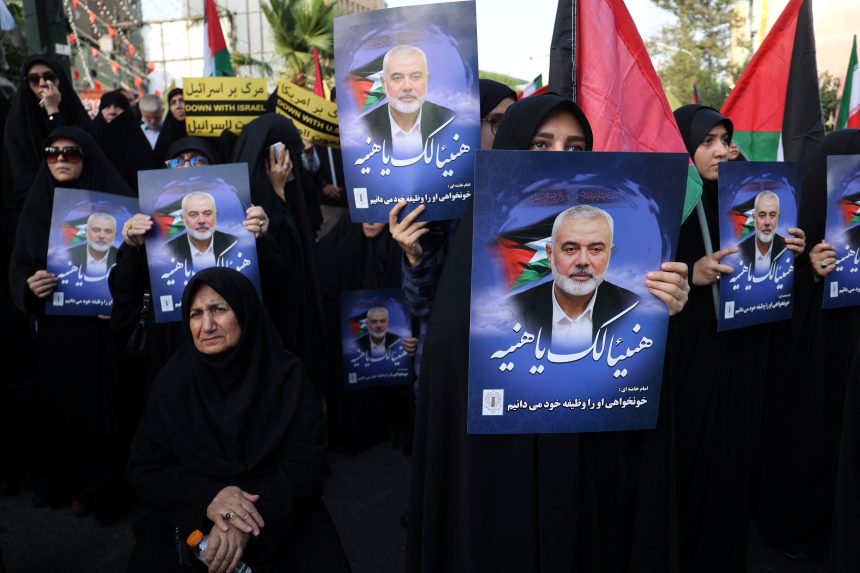The American website “Oil Price” attempted to answer the frequently asked question regarding Iran’s lack of response to Israel’s killing of Palestinian leader Ismail Haniya.
The site recounted Iran’s early threats of revenge against Israel, including a threat from Iranian Supreme Leader Ali Khamenei. It noted that an Iranian or Hezbollah attack was imminent over the past two weeks, leading to repeated bouts of hysteria on social media.
Analysts quoted by the site stated that the notion that Iran is delaying its revenge to maximize the psychological impact is more of an excuse than a viable strategy.
There is a consensus among analysts that intensive internal discussions, the complexity of coordinating with proxies, and the assessment of the risks associated with an attack have all contributed to Iran’s hesitation.
A Major Dilemma
Raz Zimet, a senior researcher at the Tel Aviv-based Institute for National Security Studies, stated that Iran “faces a major dilemma,” as Khamenei and the Islamic Revolutionary Guard want to restore Iranian deterrence against Israel. However, some elements within Iran fear that a large-scale attack could drag Tehran into a war with Israel, and possibly even with the United States.
Zimet added that even if a decision is made on how to respond, coordinating with Hezbollah and other members of the resistance axis is a lengthy process.
Another factor that is likely to influence Iran’s decision-making process is the enhanced military presence of the United States in the region compared to April, before Iran launched an unprecedented drone and missile attack on Israel.
Stronger American Response
Michael Horowitz, head of intelligence at the Bahrain-based company Lobeck International Consulting, indicated that the region might see a stronger response from the U.S. than what occurred in April, which could be aimed at addressing the greater Iranian threat compared to the April attack, especially since the U.S. has sent offensive assets to the area in addition to its defensive assets as a message of deterrence.
The website noted that Iran has rejected Western calls for restraint, insisting on its legitimate right to respond to Haniya’s killing on Iranian soil.
However, the wave of phone calls made with the new president Masoud Bezhkishan and acting Foreign Minister Ali Baqeri Kani raised speculation that diplomatic efforts may have helped delay or possibly prevent the attack.
Iran Will Do What It Sees as in Its Interest
However, Horowitz was skeptical, stating that diplomacy alone is insufficient to change Iran’s calculations, and that Iran will do what it believes is in its best interest, regardless of calls and statements urging restraint.
The site pointed out that Iran has indicated a different type of diplomacy that might convince it to at least “postpone” its promised attack, which involves a permanent ceasefire in Gaza between Israel and Hamas.
Farzan Thabet, a senior researcher at the Geneva Institute of Higher Studies, speculated that Iran “might be looking for an exit” to justify a mitigated response, and that some form of ceasefire in Gaza could represent a mere “diplomatic victory” it needs to do so.
Zimet noted that a ceasefire in Gaza might not be important for Iran, but it provides Tehran with “an excuse or explanation to legitimize this delay, mostly internally and externally.”
He stated that a ceasefire could lead Iran either to scale down the magnitude of its attack or to choose a completely different way to respond that does not involve delivering a direct blow to Israel.
The Mystery of Iran’s Response
The “Oil Price” site concluded that “the ambiguity around when to respond and how Iran will respond remains prevalent, but as things stand, Tehran does not seem to have any good or balanced options.”
Thabet emphasized that Iran’s puzzle lies in delivering a retaliatory strike that is neither weak enough to lack any symbolic or deterrent value nor strong enough to cause an unchecked escalation cycle leading to a larger war.
He confirmed that Iran has either a weak response or a response that exceeds the threshold of war, and both options carry risks.
